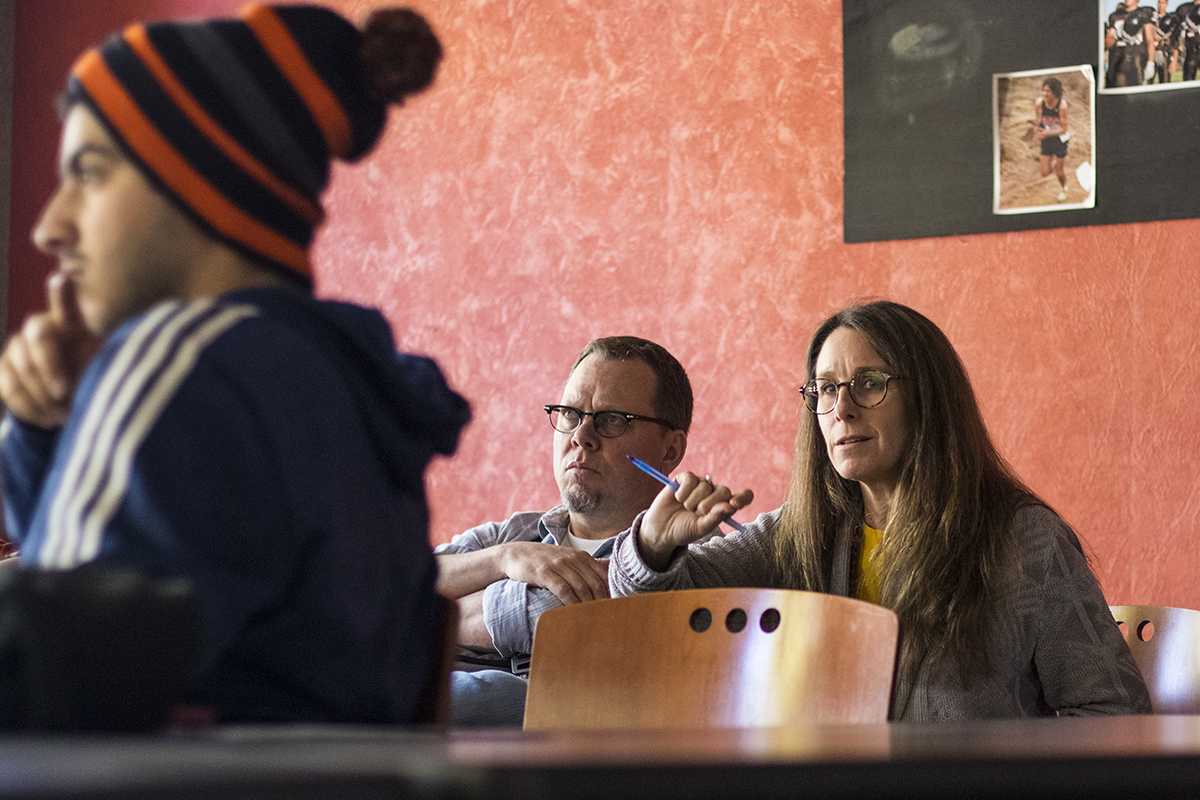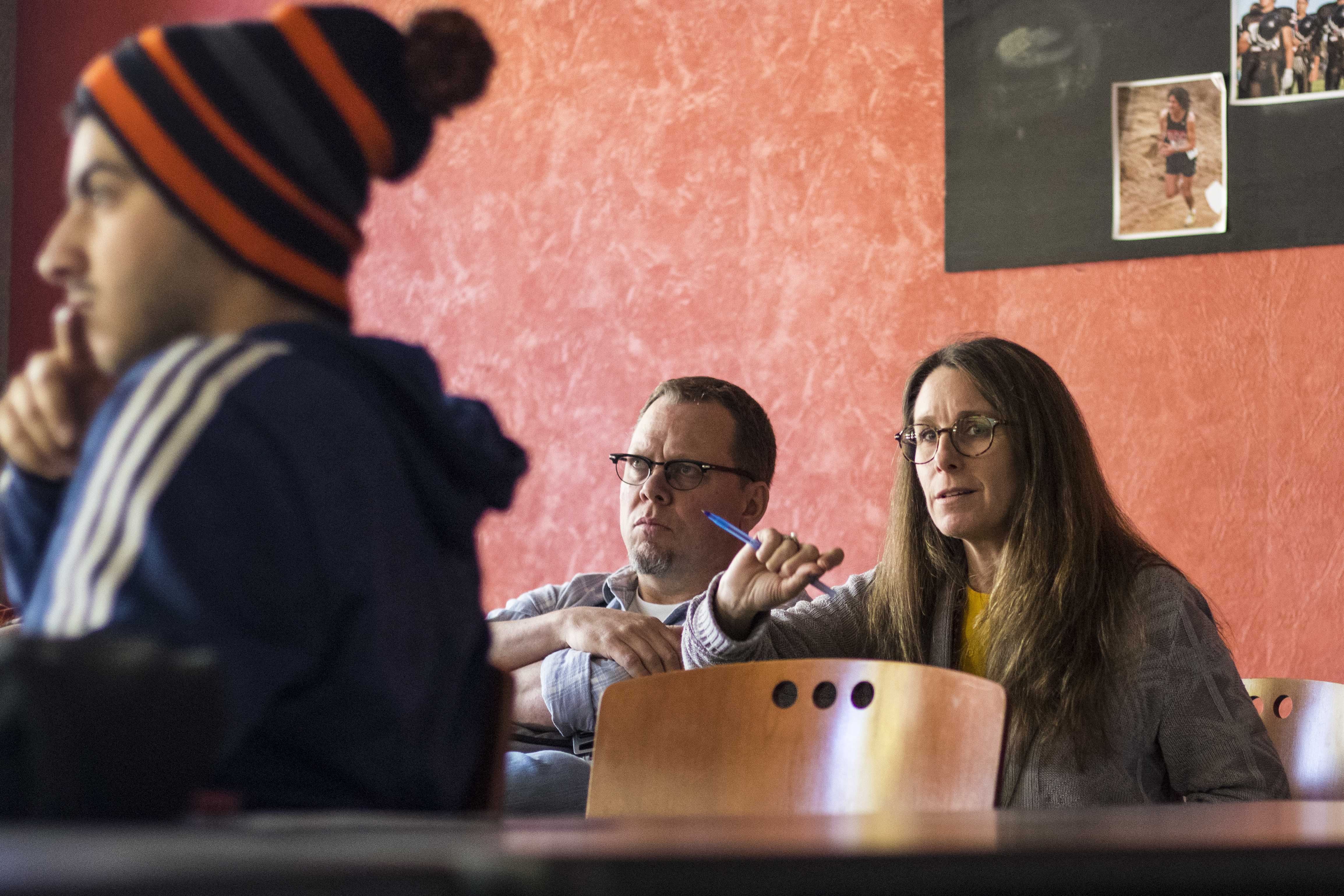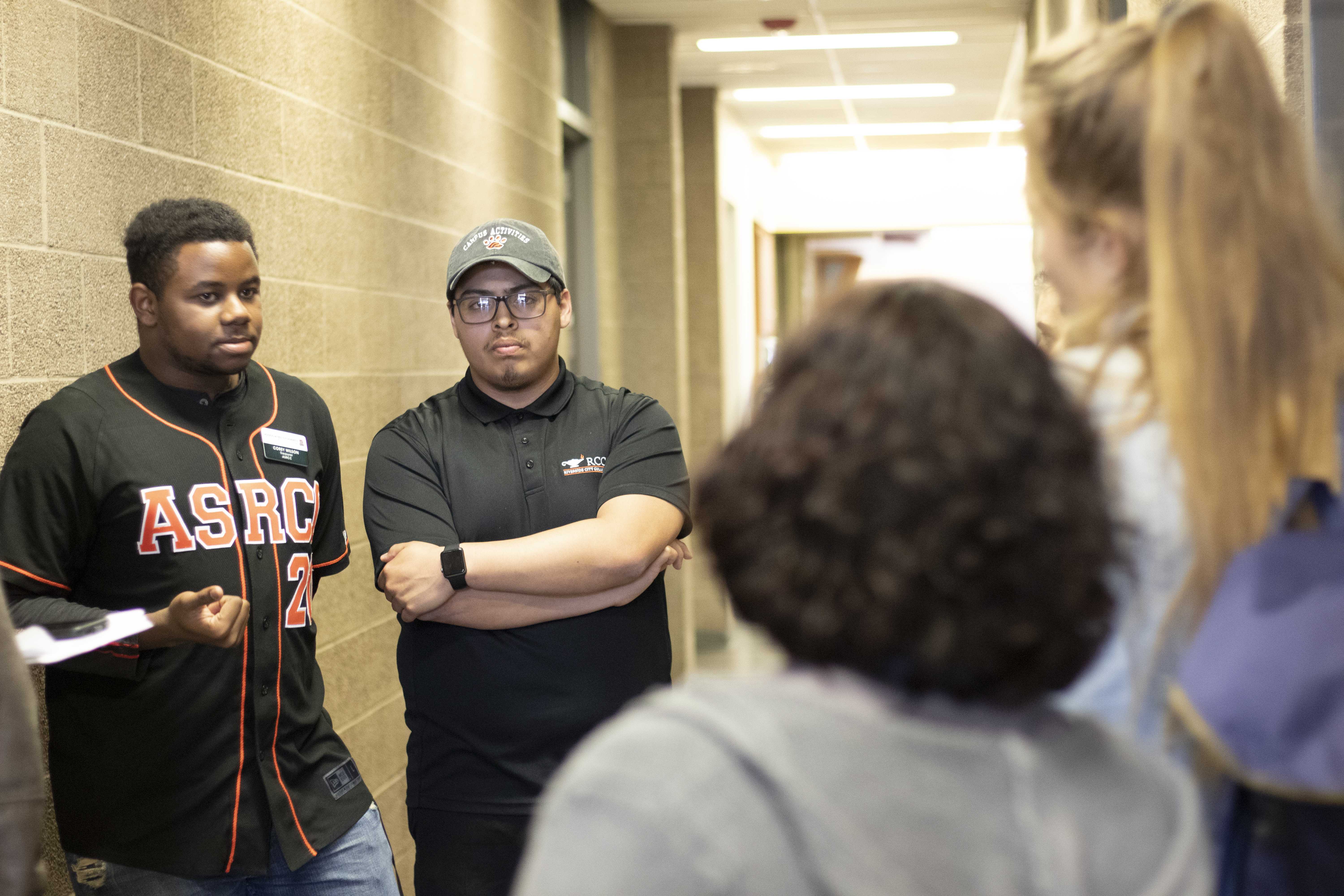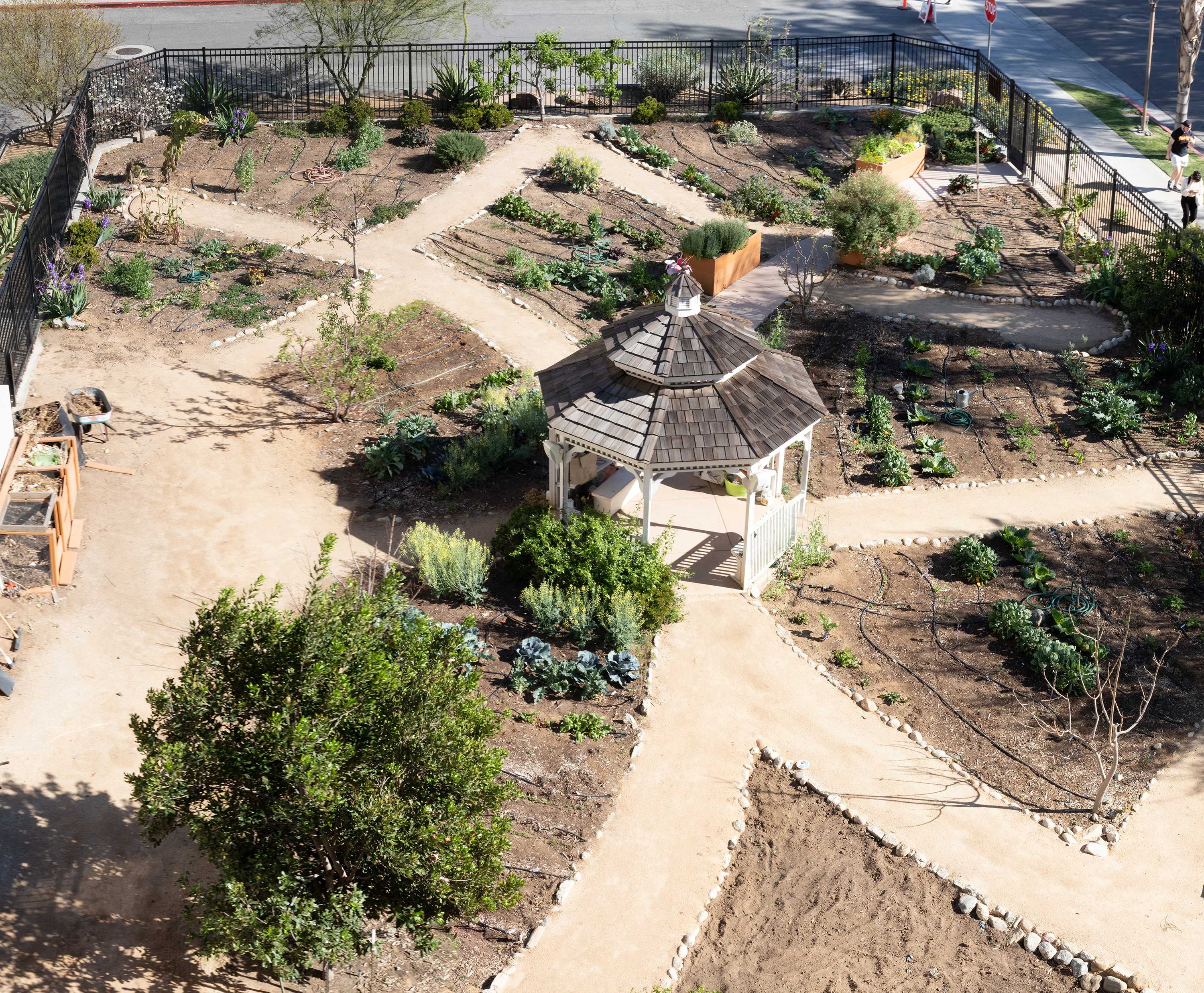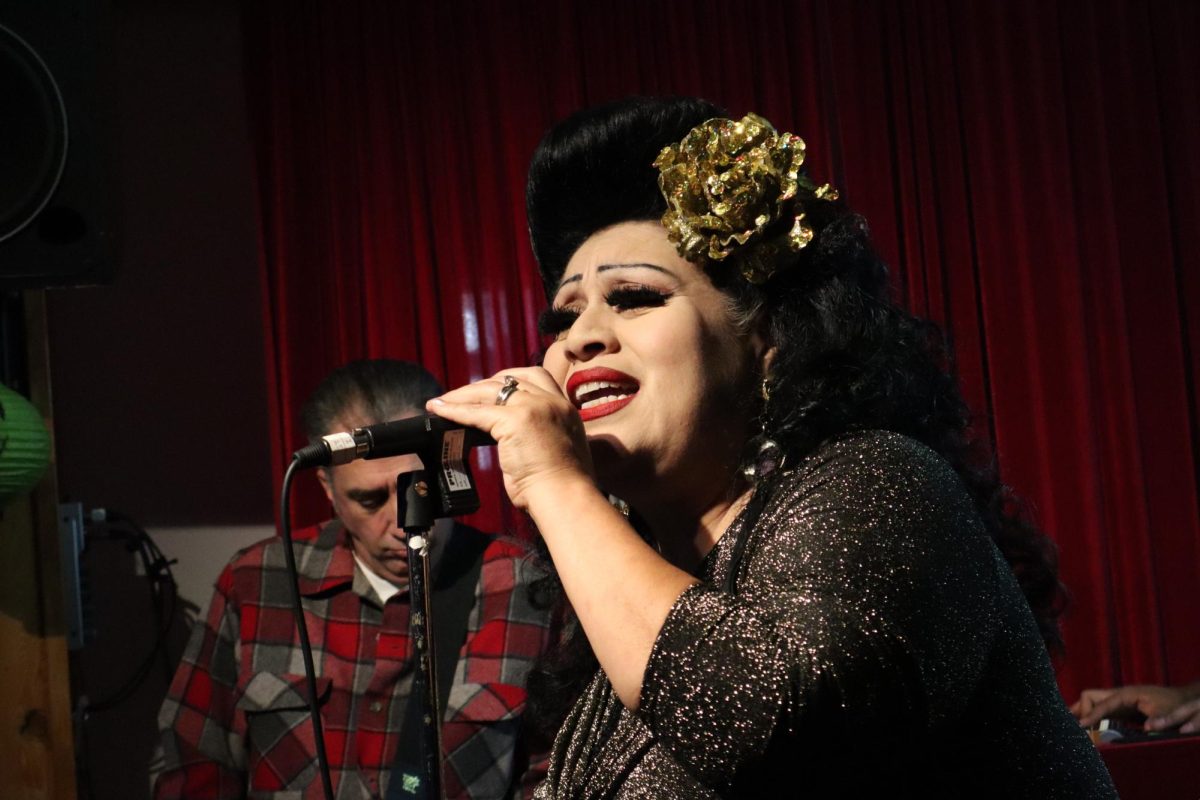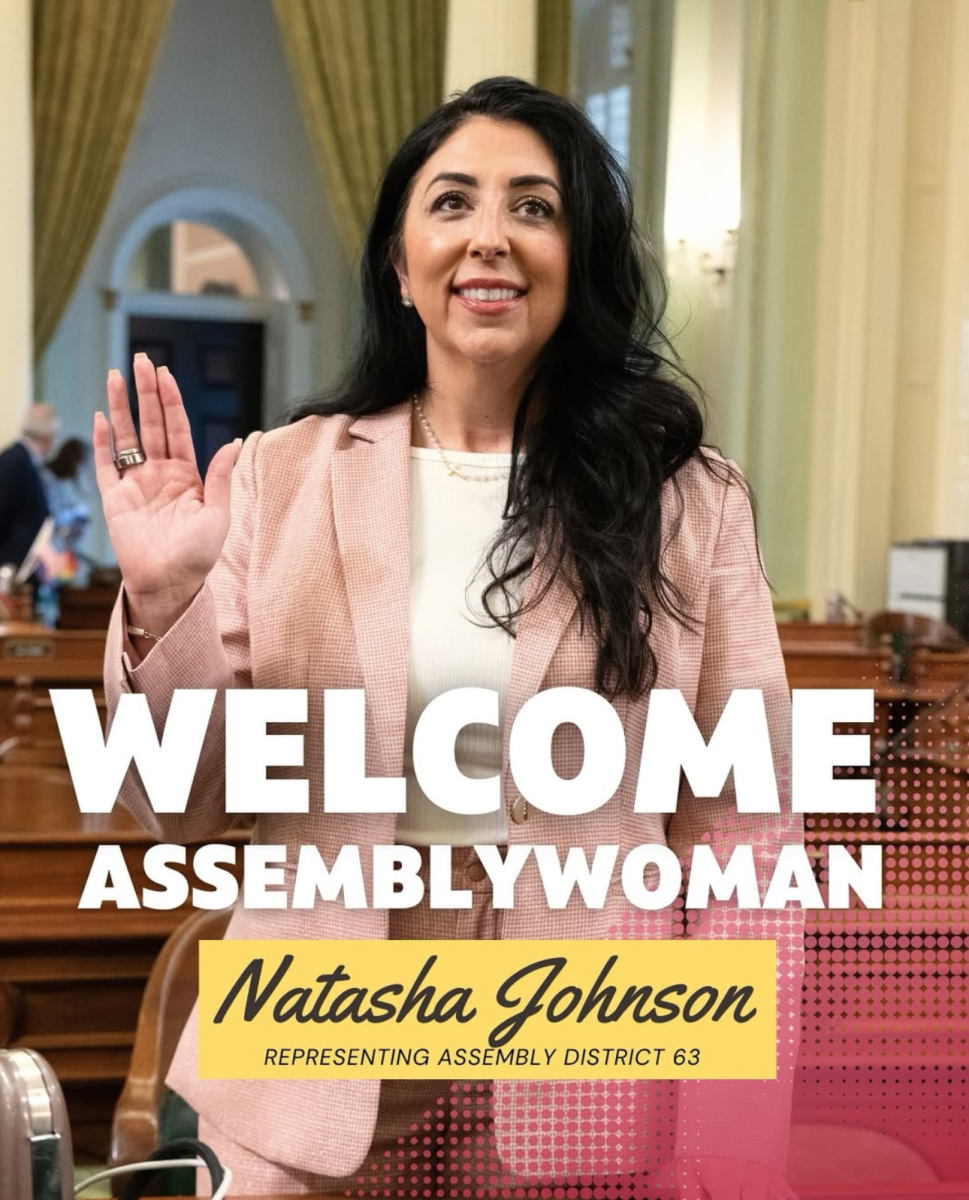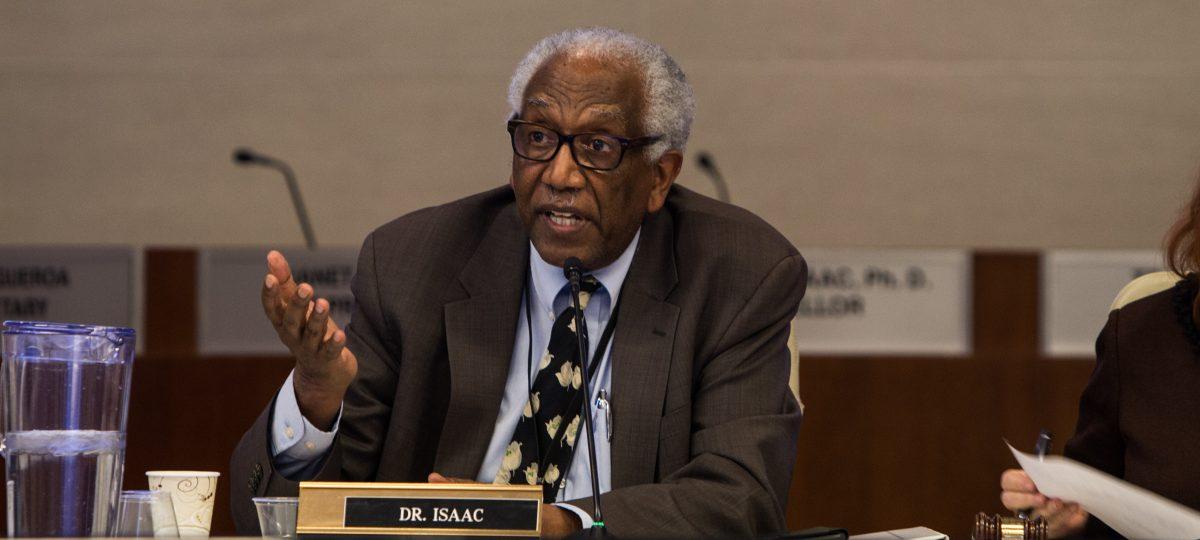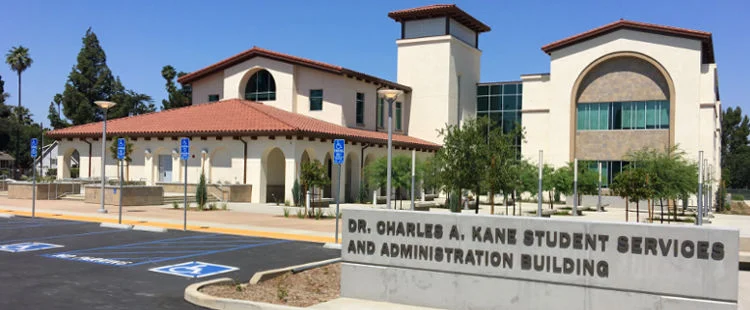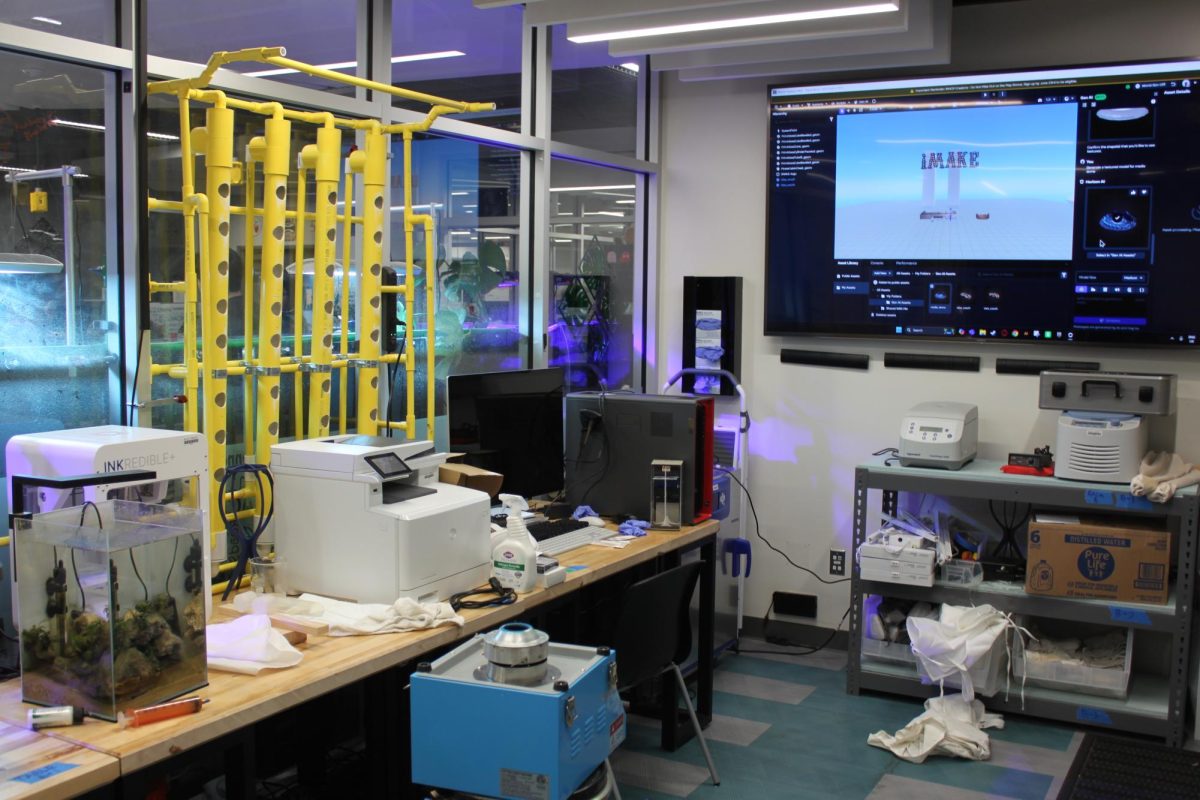By Leo Cabral
Correction: The print version of this story stated that the garden was started in 2013.
What began as a student-led communal garden in 2012 has been declared an academic site and is now under the direction of Life Sciences instructor Virginia White.
“This space is now an academic space that’s run through Academic Affairs,” White said at an Associated Students of Riverside City College Senate meeting that discussed the future of the garden on March 3. “It gets academic designation in the way that we code classrooms.”
The change to the garden, now called the Outdoor Plant Lab, took place in December. It will be treated as a lab environment and will primarily complement botany and biology course needs. The gates have been locked and only authorized Riverside City College faculty have access to the key.
“For the liability and safety of the college, it is universal that we have policies of supervision of people in these sorts of spaces,” White said.
She explained that it is not uncommon for most college campuses to have similar, even more stringent, regulations in their greenhouses.
Trained student interns can no longer enter the garden freely to work on their assignments. Four student interns are being sponsored by Cal State San Bernardino and the Santa Ana Water Project Authority to conduct water experiments on four plots adjacent to the gazebo.
Royce Li, a sustainability intern, feels unwelcome in the garden that he has helped maintain since early 2019, when it was known as the RCC Urban Farm. As an intern, Li has tended to the plots, coordinated volunteer hours, designated volunteer activities and hosted events.
Life sciences instructor Tonya Huff said that the student internships are scheduled to continue through the spring semester although they can no longer access the space to work unless she is available to supervise them.
“I saw the bars on there and I was kind of triggered,” Li said about the garden now being locked. “We were trained to know how to use the space and I feel like it’s so absurd for admin to say that it’s because of the tools. That students would be hurting themselves and it’s a liability issue.”
Public access to the garden has been reduced to six hours a week. Clubs and students can still submit a request to use the space for community and art events. White also plans to continue working with Hungry Tigers events.
A greenhouse that has been pending for five years is projected to be built in the space soon. Last May, the Board of Trustees approved $500,000 of the 2004 Measure C funds for construction to begin sometime this year.
The greenhouse is expected to occupy up to one third of the total area, where five community plots are located.
“The college administration recognizes the significant efforts and achievements of the community garden/urban farm,” Dean of Instruction Scott Blair stated in an email on Dec. 2. “While support of instruction shall be the priority of the academic space, the ongoing work of the community garden/urban farm, as a secondary use of the property, should be considered under the direction of the discipline experts.”
Three of the garden’s 12 plots are now reserved for academics, according to White. When the four plots surrounding the gazebo free up in the summer, they will likely be open for community use. Availability of plots for community use in the fall term, however, will depend on the academic needs of the courses offered.
“Being tied to classes does not mean that other people can’t use the space,” White said at the ASRCC Senate meeting. “What it means is that the courses are going to determine how much space they need and then how much space we can allot for public use.”
Several current and former members of the RCC Urban Farm and Student Sustainability Collective are unhappy with the transfer of authority and new regulations.
Some even created a petition to make their voices heard. There are concerns that reducing space in the garden will reduce food production for hungry students. There are protests to the emergence of the plastic tool sheds and the imminent greenhouse because the garden would no longer be a model of complete sustainability. Many feel that the community aspect is being taken away from the garden.
“It’s an important space,” said Beverley Eskew, former member of the collective. “It’s cross-cultural, it’s cross-disciplinary and there’s not too many spaces like it on campus.”
Sustainability Collective President Stephanie Fowler fears that limiting access to the garden will hinder its original mission. She and several alumni voiced their concerns about the recent changes to the garden at the ASRCC Senate meeting on March 3.
“We don’t have access to that space, we have been left out of any talks of the organization of it or how the space will be used in the future,” Fowler said. “Other than [how] we’ve come to find out that they have put restrictive locks on our ways to get into that place . . . There is no connection or communication with the students as far as how we can continue to use that space. It’s just all been done.”
White said that her sole supervision of the space is temporary while everyone gets used to the transition.
The greenhouse was originally going to be included in the Math and Science Building. But it was scrapped from the final build, according to White.
“Other areas were scouted out and ultimately what made the most sense was putting it in the community garden,” said Mark Sellick, the district’s Academic Senate president.
According to White, designating the garden as an academic space will influence facilities decisions and guarantee its existence for at least 10 more years.
“They have been trying to find a greenhouse space for a long time,” said Micah Carlson, a former RCC student who was part of the initial group that started the community garden. “The garden came up in the conversations multiple times and it got saved multiple times.”
Members from the Student Sustainability Collective will meet with the ASRCC Supreme Court to continue to negotiate for space in the Outdoor Plant Lab.
“I feel like we should share a space with the OPL,” said Royce Li. “That sounds reasonable.”

